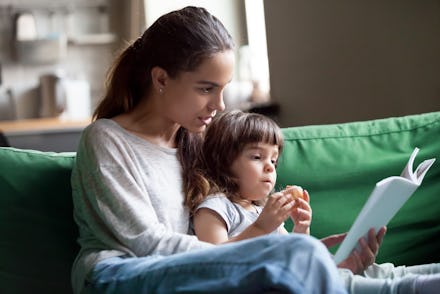These researchers may have figured out how to help kids become open-minded adults

Adults have a tendency to see children as unformed and unaware of concepts larger than what's immediately evident to them. While it’s true that kids discover many facets of their identities as they grow into adolescence, that doesn’t mean they're not already taking on several roles in their lives — as siblings, students, athletes, and more. And although we don’t always acknowledge the complexity of children's inner lives, a small but significant study shows that reminding kids about their various identities and the different roles they play actually allows them to demonstrate more flexible thinking.
"This is some of the first research on reminding kids about their multi-faceted selves," lead author Sarah Gaither, an assistant professor of psychology and neuroscience at Duke, told science news outlet EurekAlert. "Such reminders boost their problem-solving skills."
Conducted at Duke University, the study looked at 196 children six to seven years of age and separated them into two groups for different experiments. In one test, researchers reminded one group of the multiple identities they have (e.g., sons or readers) while the other group was instead reminded of the multiple body parts they have. Then, both groups were asked to solve complex problems like how a bear could get honey out of a tree. As it turned out, the kids who had been told of their different identities were more likely to show advanced problem-solving skills like noticing that the bear could turn over a nearby bowl and climb it to get closer to the honey.
In another experiment, children who had been told about their many roles prior to testing were later more likely, than those who hadn't, to categorize photographs of people in complex ways. The first group separated photos by creative categories like smiling or not smiling, which they thought of on their own, while the other group showed a tendency to group faces by age and gender, which are socially-learned categorizations. These results indicate that talking to kids about their different identities can allow them to literally identify the complicated identities of other people, even in photos.
Psychologists are excited about the study's implications. “When we remind kids that they have various identities, they think beyond our society's default categories, and remember that there are many other groups in addition to race and gender," Gaither told EurekAlert.
Amber Allison, a developmental and biological psychologist in New Orleans, tells Mic that she believes the study could have both wide-reaching and long-lasting effects. “This is pioneering research into how our concept of self influences our perception of and interaction with the world,” she explains. If kids can truly develop their creativity and complex thinking just through being reminded of the roles they perform in their lives, the impact could be huge, she adds.
“I’m very curious to see if and how that translates into functional outcomes," Allison says. "Will children who are coached on their various roles become more productive and/or successful adults, or initiate a societal shift toward acceptance of ‘others’?”
It seems likely; just look at the kids in the study who separated photos by creative categories, versus physical ones. Behind told of their identities "opens their horizons to be a little more inclusive," as Gaither told EurekAlert. In other words, this study isn't just exciting in that it shows us new ways that children can learn — it opens up new possibilities for the kinds of accepting adults that they might one day become.